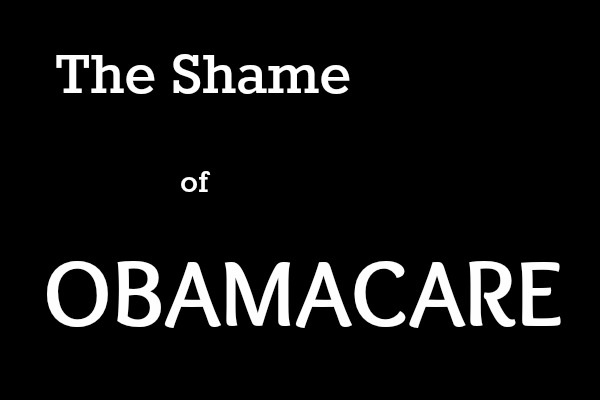
I’m a left-wing guy, grew up in the anti-Vietnam war movement, went leafleting as a twelve-year-old kid for Eugene McCarthy and as a sixteen-year-old for George McGovern, worked for a populist Democratic candidate, former Sen. Fred Harris of Oklahoma, against Jimmy Carter in New Hampshire in 1976, and supported Democrats and particularly progressive Democrats all my life. I don’t believe I’ve ever voted for a Republican and I’m second to none in my disdain for the modern Republican Party.
I was an early supporter of Barack Obama. I preferred him to Hillary for several reasons: 1) he opposed the Iraq war; she had voted for it; 2) I was embarrassed to live in a country that would elect Bush/Clinton/Bush/Clinton, like some sort of banana republic; 3) I found him the more eloquent and thoughtful candidate; 4) on the one domestic issue on which they disagreed, she supported a “universal health insurance” program with a mandate to purchase health insurance; he opposed the mandate and simply favored making health insurance more affordable so that more Americans could get themselves insured. “How are you going to enforce the mandate? Are you going to fine people or throw them in prison?” he would ask at debates, and she always ducked the question because she had no answer to give.
On health insurance, candidate Obama was right and candidate Clinton was wrong. Then he got elected and enacted her program. Nobody in the press called him on the betrayal of his campaign promise not to enact a mandate. And it’s been an unfolding disaster ever since.
Let’s put aside the policy debate for just a moment and focus on the politics. More than any other cause, Obamacare gave us the Republican House takeover of 2010. Perhaps they would have taken over the House anyway, given the slowness of the economic recovery, but surely not by such a wide margin. More than any other cause, it gave the Tea Party a broad base of inflamed supporters. After the Republican government shutdown debacle in the fall of 2013, the Democrats led in the generic ballot polls by some 10 points–a potential landslide that could have delivered the House back into Democratic control. Then came the debacle of the Obamacare rollout, and the Republicans surged ahead and once again shellacked the Democrats in the mid-terms. That huge swing was for one reason above all others: Obamacare. Was it really worth it? Was Obamacare worth the price of the Senate?
Don’t be fooled by the fact that House Republicans have voted some fifty times to repeal Obamacare. The truth is, they love Obamacare. It’s the only thing the Republican Party has going for it. The American people disagree with Republicans on every issue that matters: taxation, spending priorities, reproductive rights, marriage equality, minimum wage, energy policy, social security, Medicare–you name the issue, the Republican Party is out of touch. They would be a thoroughly marginalized, ineffectual party consigned to permanent opposition status were it not for the gift that never stops giving—Obamacare, the single issue on which the Republicans are more aligned with the voters than the Democrats.
What Obamacare does is create winners and losers. I have friends, a couple who are 58 years old, who two years ago, before Obamacare kicked in, paid for their own Anthem medical insurance (since neither gets insurance through work) for $495 per month. Because they don’t qualify for a subsidy, two years later their insurance costs, for a plan whose benefits are no better than the benefits they had two years ago, have skyrocketed to $1250 per month. In general, those in the private insurance market who don’t qualify for subsidies are the big losers under Obamacare; they are effectively helping to defray the costs that the insurance companies now are obligated to pay for those they previously would have denied insurance. The winners are those who receive subsidies and those who were previously denied coverage and can now get policies.
From a political standpoint, the problem is that the losers feel aggrieved, and the winners don’t always feel that their lives have been improved. If you are a healthy young person who used to willingly go without health insurance, and now you are a “winner” who has health insurance, even subsidized health insurance, you don’t necessarily feel your life improved with this new bill you have to pay monthly and this new, often annoying, bureaucratic entity called a health insurance company that you need to deal with. The political calculus of creating losers who get angry with your program and winners who often feel indifferent to it at best should not be hard to assess. It has been an unmitigated disaster for the Democrats.
But forget politics now; let’s look at it from a policy perspective. Isn’t Obamacare progressive, at least, as so many lefty pundits are fond of saying, in “providing health care to millions of Americans?” Not necessarily. First, it doesn’t provide health care; it provides health insurance. Let’s stop conflating the terms “health,” “health insurance,” and “health care.” It is entirely possible that someone with health insurance could have less, not more, access to health care than someone without it. Insurance is merely a business deal, after all, that you make with an insurer: you agree to pay a premium every month, and in return, the insurer covers certain types of costs, including of course catastrophic costs. Since health insurance companies make a profit, by definition that means that, in the aggregate, they come out ahead. If you add up what consumers will spend for the security of knowing they are protected from catastrophic costs (the cost of insurance) plus what they shell out yearly to meet their “out-of-pocket maximums,” that will be more than their total aggregate cost of health care. In the aggregate, consumers lose. Some of those consumers will be people struggling to pay the bills, whether they are low-earners or even middle-income people with a large family or high monthly expenses. Consider a consumer who has been in good health all year, has not seen a doctor, but is struggling to pay the bills, and one of those bills is her health insurance premium, let’s say $300 per month. It’s December, and she develops a pain in her leg. Does she go to the doctor? She hasn’t met her deductible yet, so there will be a cost, maybe $100, maybe more. She doesn’t go, because she can’t afford it. Had she not already shelled out $3600 that year in health insurance premiums, she could easily afford to go to the doctor. So having health insurance does not automatically mean more access to medical care; in some cases, it can mean less.
But it’s true that, in the main, having health insurance gives the consumer more access to medical care, or at least makes the consumer more willing to go to a doctor to get some value out of the health insurance dollar already spent willy-nilly. Still, going to the doctor doesn’t rank in the top ten factors affecting health outcomes. Diet and lifestyle are far, far more important factors in health outcomes than doctor visits. In fact, where the medical system does rank in the top ten is in causes of death: it is the third leading cause of death in America (according to the Journal of the American Medical Association (http://www.health-care-reform.net/causedeath.htm), usually estimated at 200,000 deaths or more per year, although some experts think the number is far higher.
So there’s really nothing terribly progressive in a health insurance reform (Obamacare) that forces people to buy insurance from a private company, imposes a fine on those who feel they can’t afford it, creates winners and losers, creates resentment of government, motivates people to embrace a medical delivery system that may not be in their own best interest, and helps sweep Republicans into office. There was one notable accomplishment of Obamacare, and that was to end the obscene practice of denying people coverage based on pre-existing medical conditions. But that was an easy enough problem to solve without the convoluted contraption of Obamacare, as I explain in The Simple Alternative to Obamacare.
Click to contact Glen Merzer!
